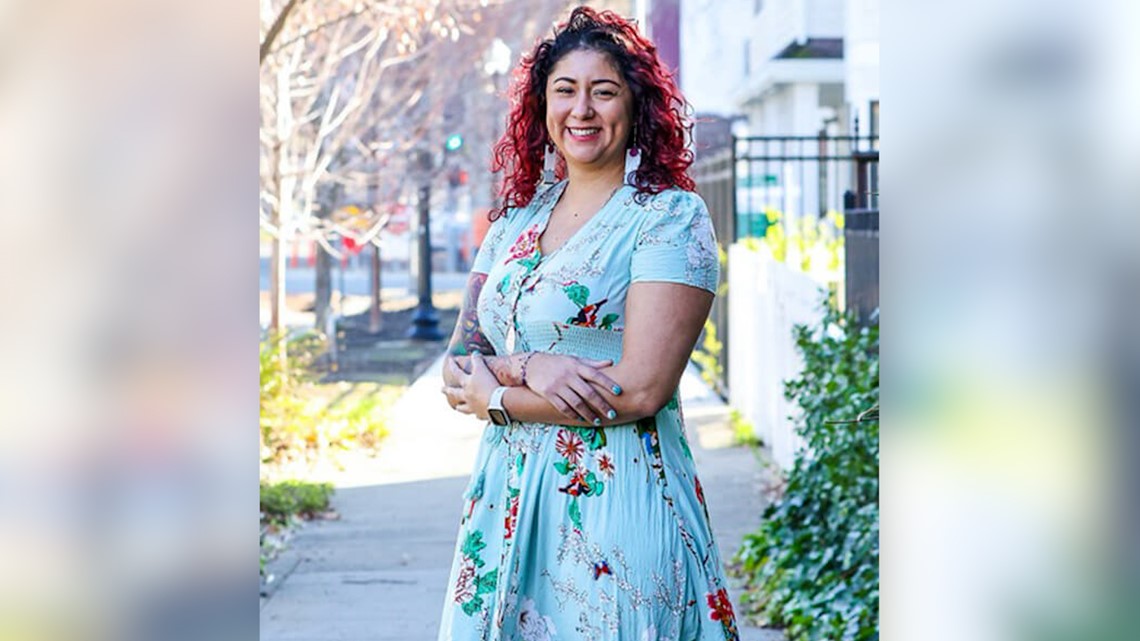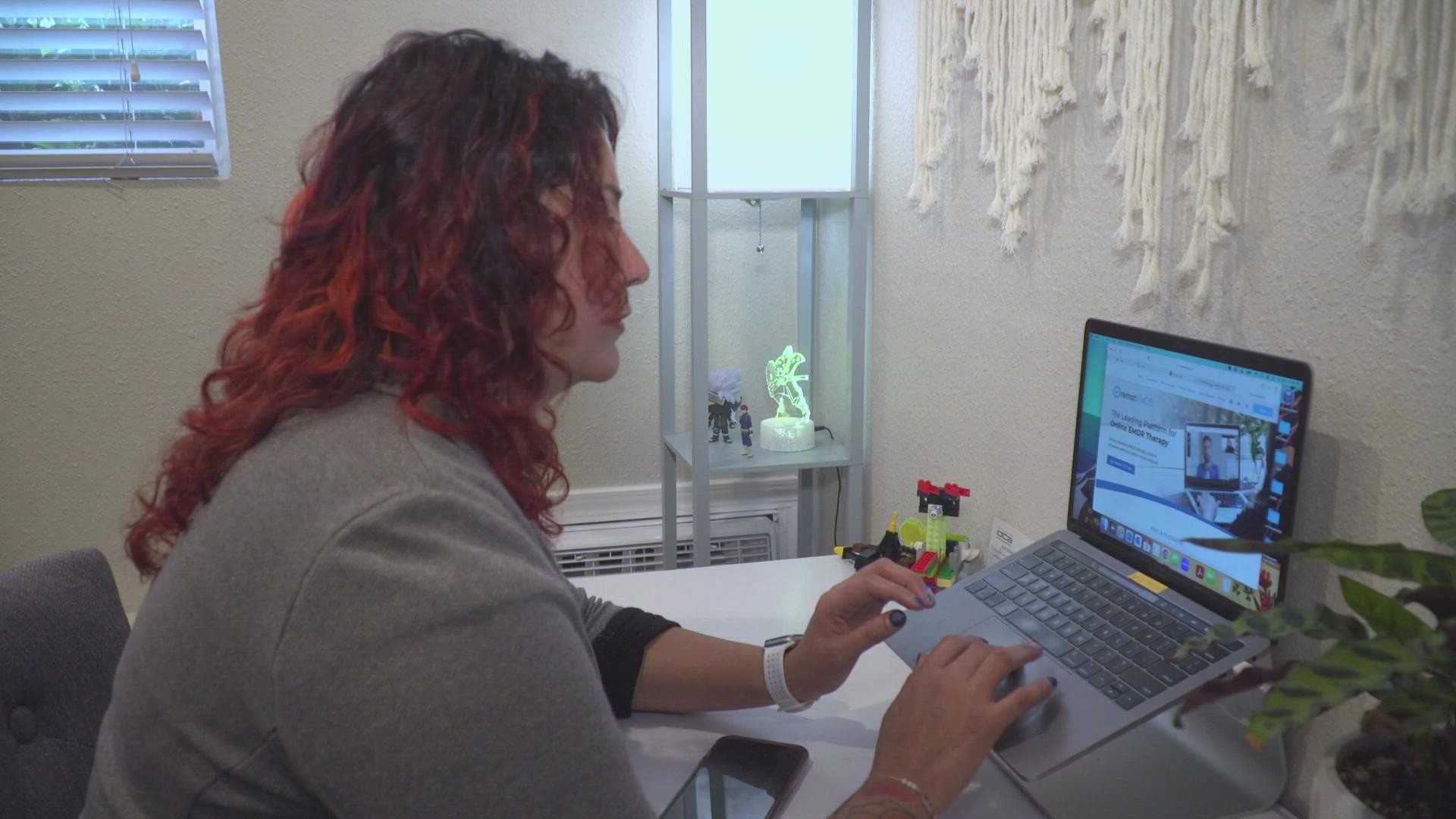SACRAMENTO COUNTY, Calif. — Nercy Basulto Fuentes is a licensed marriage and family therapist (LMFT) in Sacramento.
As a proud Latina, she says representation matters, especially in health care. At a young age, Basulto Fuentes says she struggled to find health professionals of the same race, culture and Spanish language.
She says she decided to go into the health care field to help others, make a positive change, and provide more diversity and a sense of belonging and understanding for communities of color.
"I love helping people," said Basulto Fuentes. "I love to see people grow. I love to see people going from, 'I do not know where I am in life, to I love everything that's going on and I can see my future clearly.' It's just such a rewarding job."


Even though the mental health field is becoming more diverse, research shows people of color still struggling to find representation.
According to the latest data from the American Psychological Association, White people represented about 86% of psychologists in the U.S. workforce in 2015. At the same time, Asian and Hispanic people accounted for 5% and Black people made up 4%.
The same data also shows only 5% of psychologists - who may be Hispanic or another race - can provide services in Spanish.
"I think having more representation in this field is just so important," said Basulto Fuentes. "It breaks those cultural barriers and it puts down those walls, as soon as you can talk to someone in that language."
Basulto Fuentes earned dual Masters degrees – one in Clinical Psychology with an emphasis in Marriage and Family Therapy and the other in Professional Clinical Counseling – from Azusa Pacific University in 2018. She also earned marriage and family therapist licenses and Associate Professional Clinical Counselor.
Now, as a professional therapist, Basulto Fuentes offers mental health services to people of all ages and backgrounds. But, she says, she, specifically, wants to help women and people of color who struggle the most to find representation in health care.
She goes on to explain that her experiences with racism - past and present - shaped her own mental health.
"As a child, I was called names, because I'm Hispanic," Basulto Fuentes said. "And, even as an adult, I also experienced microaggressions. When I was trying to find a clinician, clinicians would say that 'they do not see color.' That's a hard experience because, I do not think that's something that should be said to a client. We have our cultures and, as a Latina, I want to highlight who I am fully."
When it comes to fighting racism and discrimination, Basulto Fuentes is not alone. Black Women Organized for Political Action (BWOPA) and Hispanas Organized for Political Equality (HOPE) released a new report on the current state of mental health for Black and Latina women in California.
It shows racism and discrimination continues to take a toll on the mental health of Black and Latina women. Researchers surveyed 800 Black and Latina women in California in August 2022.
77% of survey respondents reported having experienced some form of discrimination because of their race or ethnicity, physical appearance or other personal characteristic. 69% of survey respondents also said their experiences with racism or discrimination negatively impacted their emotional well-being or mental health.
“Our research draws a direct line between the challenges in accessing mental health care for Latinas and Black women to the shortage of mental health professionals that share our backgrounds,” said Helen Torres, CEO of HOPE. “The data is a call to action for healthcare providers and educational institutions to address the negative impacts of a healthcare workforce that does not represent the communities it serves. We must take steps to close the representation gap and provide better care to all.”
The report also found that numerous barriers to mental health care still exists for Black and Latina women in the state. More than 3 in 5 survey respondents reported having a mental health concern for which they did not seek care from a provider.
52% said it's difficult to find a counselor, therapist or mental health care provider who shares their values or comes from a similar background. Some of the top barriers to seeking care include monetary and opportunity costs, like, inability to take time off work, length of time to appointment and transportation.
The report calls for key investments to be made by healthcare providers and universities to increase the number of women of color who enter mental health professions, for healthcare providers to lower costs and for community groups to bridge the lack of knowledge women of color have about mental health care.
“We have known that racism and discrimination take a toll on the mental health of our communities, and now we must factor in the disproportionate and lingering effects of the pandemic on communities of color,” said LaNiece Jones, executive director of BWOPA. “What matters now is that we don’t sweep these added challenges aside but treat these barriers in mental health care for what they are, a crisis in care that must be urgently addressed.”
Basulto Fuentes is encouraging everyone, especially Black and Latina women, to take care of their mental health. She goes on to explain that it's also important to break stigmas relating to mental health or illnesses in communities of color. Despite the challeges and barriers, she says there are still some options and mental health resources available for Black and Latina women.
"Our struggles are hard, but you are not alone," said Basulto Fuentes. "There are so many things that can get in the way, but it's still so important to make sure you get the help you need."
Substance Abuse and Mental Health Services Administration (SAMHSA) is on a mission "to lead public health and service delivery efforts that promote mental health, prevent substance misuse, and provide treatments and supports to foster recovery while ensuring equitable access and better outcomes."
SAMHSA’s National Helpline is a free, confidential, 24/7, 365-day-a-year treatment referral and information service - in English and Spanish - for individuals and families facing mental or substance use disorders. The national hotline is 1-800-662-HELP (4357). For more information or resources, visit SAMHSA’s official website.
The CDC also offers the free and confidential resources, shown below, to help you or a loved one connect with a skilled, trained mental health professional.
If you are in crisis, get immediate help:
- Call 911
- 988 Suicide & Crisis Lifeline (formerly known as the National Suicide Prevention Lifeline): 988 for English or Spanish, or Lifeline Chat. TTY users can use their preferred relay service or dial 711 then 988.
- Crisis Text Line: Text SIGNS to 741741 for 24/7, anonymous, free crisis counseling
- Disaster Distress Helpline: CALL or TEXT 1-800-985-5990 (press 2 for Spanish)
Abuse/Assault/Violence:
- National Domestic Violence Hotline: 1-800-799-7233 or text LOVEIS to 22522
- National Child Abuse Hotline: 1-800-4AChild (1-800-422-4453) or text 1-800-422-4453
- National Sexual Assault Hotline: 1-800-656-HOPE (4673) or Online Chat
LGBTQ+
- Trans Lifeline: 1-877-565-8860 (para español presiona el 2)
- The Trevor Project’s TrevorLifeline: 1-866-488-7386
Older Adults:
- The Eldercare Locator: 1-800-677-1116 – TTY Instructions
- Alzheimer’s Association Helpline: 1-800-272-3900 (para español presiona el 2)
Veterans/Active-duty Military:
- Veteran’s Crisis Line: 988, then select 1, or Crisis Chat or text: 838255
- U.S. Department of Veterans Affairs Mental Health Resources
- Help for Military Service Members and Their Families
Finding Treatment:
- FindTreatment.gov: Find a provider treating substance use disorders, addiction, and mental illness.
- American Psychiatric Association Foundation: Find a Psychiatrist
- American Academy of Child and Adolescent Psychiatry: Child and Adolescent Psychiatrist Finder
- American Psychological Association: Find a Psychologist
Opioid Treatment:

